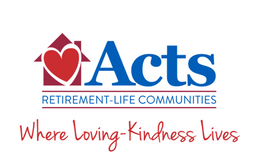Myths About Retirement Financial Planning
These are just a few of the most common ones to look out for — and the truths behind them

Planning for retirement is important to ensure you have enough financial resources to enjoy yourself in retirement. However, there's a lot of uncertainty about how much you need to save and how you should be saving, leading to an increase in myths about retirement financial planning. Here are just a few of the most common myths that you should look out for as well as their actual realities.
Myth: You Need to Save X Number of Dollars Before You Retire
We all have varying needs and wants which can affect our retirement plans. That's why saying that you need to hit a specific dollar amount before retiring can be too arbitrary. If you're seeking to live modestly in retirement, your annual expenses are going to be much lower than someone who wishes to live more extravagantly. You will need to determine your retirement living goals and work toward saving enough to maintain the lifestyle you desire which is why a specific dollar amount doesn't fit everyone's requirements.
Here's how you can start determining your retirement financial goals — decide what type of retirement life you want to have. Is it enjoying several cruises? Is it golfing daily? Is it flying frequently to visit your family? Or is it settling into a retirement community and enjoying the amenities, activities, and dining already provided at no extra expense? Start with your retirement plans before determining how much you need to save to make it happen.
Click here to read the article Can I Afford Retirement?
Myth: You'll Only Have 70% to 80% of Your Pre-Retirement Expenses
It's not uncommon to hear that because you're no longer paying payroll taxes or making 401(k) contributions, you'll have some extra income as a result. While this may be true, it can be further amplified by downsizing your home, reducing extra maintenance, utilities and other home related costs. However, you'll need to consider how your lifestyle may be changing as well. Perhaps you intend to travel more now that you are no longer working full time or you may be interested in getting back into some long-lost hobbies. New or increased activities like these are going to add costs to your budget at the same time as your previous expenses are reduced. This is why it's important to consider and plan for the type of retirement you want, and ensure all aspects are considered.
Click here to read the article How Much Money Do I Need to Retire?
Myth: All You Need to Do is Max Out Your 401(k) Contributions to Save for Retirement
A 401(k) can be a great retirement savings plan. It builds wealth while also reducing your taxable income as you save. Yet even maxing out your contributions every year may not get you as far as you need for your retirement goals. As of this writing, 401(k) contributions are capped at either $19,000 a year for investors under age 50 or $25,000 a year over age 50. Considering your salary may shift to Social Security (and potentially a pension), you'll likely need more than your 401(k) savings to maintain your current standard of living or something close to it. You may want to consider diversifying your retirement savings to supplement your 401k.
Myth: Haven't Saved Enough? Just Keep Working!
Many people may have heard that you'll have to keep working past retirement in order to afford retirement. You could get a part-time job, either to supplement some income or to keep busy and engaged, or both. However, with increased health concerns as we age and potential volatile job environments, the better option may be to increase earlier retirement savings through higher 401(k) contributions or other retirement savings investments.
Click here to read the article What is the Average Cost of a Senior Independent Living Community?
Myth: Conservative Investments are a Must During Retirement
It's common to feel like your retirement success is tied to market volatility much more than it was before you retired. It's become "conventional wisdom" to invest heavily in more conservative investments like bonds — however these may not always be the best choice. With people on average living longer, retirement portfolios need to last longer as well — and conservative investments, like bonds, can often provide yields that are simply too low to maintain your lifestyle for as long as you need. This is why you may want to continue having diversified retirement savings investments, however, before making any changes or decisions you should consult with a licensed financial advisor.
Financial Planning Advice
Appropriately planning for retirement requires you to seek out investment advice that's tailored to your specific circumstances and goals. With each person's needs, earning capacity and desires completely different, there are no easy answers; no set thresholds to hit that will guarantee success; no perfect, fool-proof formula that you can follow without fail for a comfortable retirement. Instead, you need to create your personal retirement plan to help ensure you have enough savings for retirement.
As you plan, take into consideration that your savings needs can change from one year to the next. If you receive a pension, or you inherit property or resources from a deceased relative, these events can change your retirement savings requirements. For additional guidance, consider seeking the help of a qualified and experienced financial planner.
For more information on retirement, read these articles by Acts Retirement-Life Communities:
- Retirement Myths vs Reality: What You Need to Know
- Surprising Retirement Facts
- Does a CCRC Make Sense for You?

Acts Retirement-Life Communities is the largest not-for-profit owner, operator and developer of continuing care retirement communities in the United States. Headquartered in suburban Philadelphia, Acts has a family of 23 retirement communities that serve approximately 8,500 residents and employ 6,200 in Pennsylvania, Delaware, Maryland, North and South Carolina, Georgia, Alabama and Florida. For more information about Acts visit actsretirement.org.

